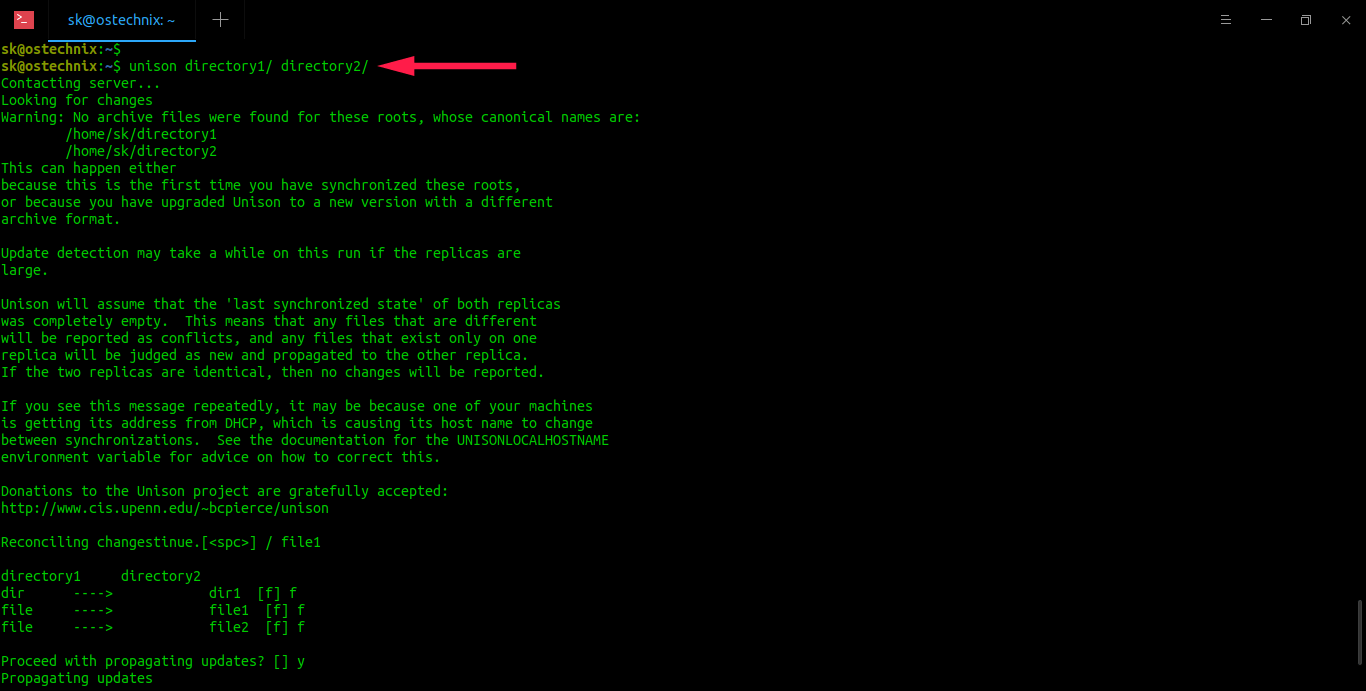

# change from the other replica, since it always does a safe
#UNISON FILE SYNCHRONISATION UPDATE#
# However, Unison will never overwrite such an update with a # and length of the file are both unchanged by the update. # Unison to miss propagating an update if the modification time # number' when scanning replicas for updates, instead of reading # modification time and length of a file as a `pseudo inode # When this preference is set to true, Unison will use the # text user interface.) See also the mountpoint preference. (At the moment, this flag only affects the # preference is used, the same confirmation will be requested for # also set, synchronization will be aborted. # deleted, before propagating the change. # confirmation if it appears that the entire replica has been # !When this is set to true, Unison will request an extra Non-conflicting changes will be propagated # When this is set to true, the user interface will ask no

# next, it will skip over all non-conflicting entries and go # propagation direction for one entry and is about to move to the # precisely, when the user interface is done setting the # asking for confirmations on non-conflicting changes. # When set to true, this flag causes the user interface to skip #ignore = Name *.tmp # ignores all files with the extension. #ignore = Name stats* # ignores all files/directories that begin with "stats" #ignore = Name *stats # ignores all files/directories that end with "stats" #ignore = Path */stats # ignores /var/www/somedir/stats, but not /var/www/a/b/c/stats #ignore = Path stats/* # ignores /var/www/stats/* #ignore = Path stats # ignores /var/www/stats # Some regexps specifying names and paths to ignore

In case you don’t want to run Unison interactively, we can create a preferences file (/root/.unison/default.prf) that contains all the settings that you would otherwise have to specify on the command line:


 0 kommentar(er)
0 kommentar(er)
